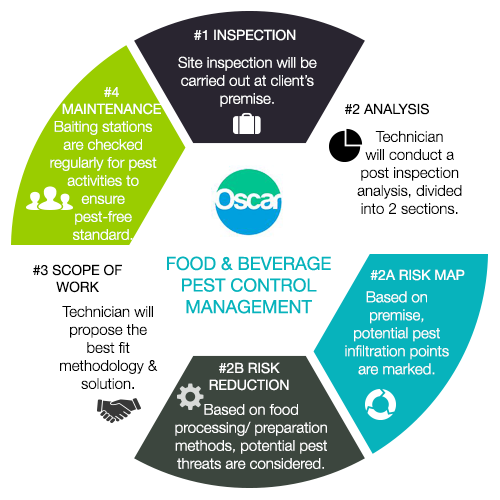Exploring Advanced Techniques Utilized By Insect Management Professionals
Exploring Advanced Techniques Utilized By Insect Management Professionals
Blog Article
Article Developed By-Bynum Caspersen
Are you tired of relying entirely on sprays to deal with parasites in your house or office? While sprays can work, pest control specialists have developed sophisticated methods that exceed merely spraying chemicals.
These methods not just provide more reliable and resilient remedies, however also concentrate on minimizing the use of damaging pesticides. By exploring these sophisticated strategies, you will certainly uncover an entire brand-new world of pest control approaches that are not just effective, yet additionally eco-friendly.
So, are you ready to take your insect control video game to the following degree?
Integrated Insect Management (IPM)
If you're looking for a reliable and environmentally-friendly technique to pest control, Integrated Pest Administration (IPM) is the remedy you need. IPM concentrates on lasting avoidance and management of insects, as opposed to just counting on pesticides. This approach considers the specific needs and behaviors of insects, in addition to the surrounding setting.
By utilizing a combination of strategies such as organic control, environment adjustment, and targeted pesticide usage, IPM intends to minimize the dependence on chemical treatments and decrease harm to non-target organisms.
One essential element of IPM is keeping an eye on and recognizing parasites precisely. This involves regularly inspecting and assessing the pest populace, as well as identifying the certain species existing. By understanding the biology and behavior of pests, insect control professionals can develop targeted techniques to interrupt their life process and reduce their numbers.
https://rat-removal-specialists62728.dailyhitblog.com/31156106/insider-understanding-methods-made-use-of-by-pest-control-professionals-to-address-normal-parasite-issues of IPM is utilizing non-chemical control methods whenever feasible. This can include physical obstacles, such as setting up screens or securing cracks and holes, to prevent insects from getting in structures. Furthermore, social methods, like proper cleanliness and waste management, can assist get rid of parasite food resources and breeding premises.
When pesticides are required, IPM concentrates on using them deliberately and as a last option. This implies picking the least harmful and most efficient option, applying it precisely and just to impacted locations, and following all security guidelines. By minimizing pesticide usage, IPM lowers the possible risks to human health and the setting.
Biological Control
To further enhance the effectiveness of Integrated Pest Management (IPM), the next subtopic we'll explore is the approach of biological control. This method utilizes all-natural killers or bloodsuckers to manage pests.
Below are four crucial facets of organic control:.
1. Intro of all-natural adversaries: In this approach, advantageous bugs or organisms are presented to the area plagued with insects. These natural adversaries take advantage of the insects, aiding to minimize their population.
2. Conservation of all-natural opponents: Rather than presenting brand-new organisms, this technique concentrates on creating an appropriate setting for existing advantageous bugs. This can be accomplished with supplying food, shelter, and water sources.
3. Augmentation: Below, the number of natural enemies is enhanced artificially by breeding and releasing them into the plagued location. This assists to rapidly lower the pest population.
4. Push-pull strategy: This technique incorporates repellents and attractants to control the habits of bugs. Repellents push pests far from plants, while attractants lure them in the direction of trap crops or locations where they can be conveniently managed.
Environment Alteration
Environment adjustment plays a critical role in insect control by altering the setting to discourage pest invasions. By making changes to the physical characteristics of an area, you can develop an inhospitable atmosphere for pests, making it harder for them to make it through and grow.
One common approach of habitat alteration is removing or lowering prospective food resources for insects. This can include proper waste administration, sealing containers, and tidying up food crumbs.
Furthermore, eliminating or reducing locations of standing water can assist control insects like mosquitoes.
Changing the landscape by cutting trees and hedges away from structures can additionally prevent bugs from accessing your building.
Final thought.
So there you have it - the advanced methods made use of by pest control specialists exceed just spraying chemicals. Integrated Parasite Management (IPM) integrates numerous approaches to effectively control insects, while organic control harnesses natural adversaries to maintain insect populations in check.
Habitat alteration likewise plays a critical duty in preventing insect invasions.
Did you know that according to a research, implementing IPM strategies reduced chemical use by approximately 71%? over at this website shields our health and wellness and the setting however additionally saves money in the long run.
